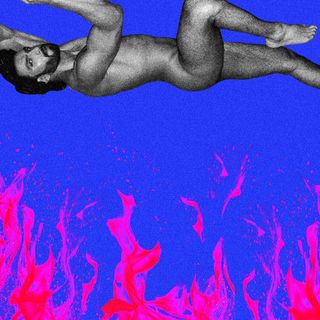
Arivu Claiming His Credit for ‘Enjoy Enjaami’ Resists the Mainstream’s Erasure of Caste From Its Story
The rapper being sidelined from his own work is an example of the extent to which the cultural erasure of caste goes on.

In an Instagram post yesterday morning, Tamil anti-caste rapper Arivu finally spoke out about a long-brewing controversy surrounding his viral and immensely powerful track Enjoy Enjaami, for which he had worked with singer Dhee and music director Santhosh Narayanan. The song itself is about Arivu’s grandmother, her community, and their relationship with land; in the year since its release, however, Arivu himself was sidelined from the mainstream acclaim it received.
Although acknowledging the fact that the final track was a collaborative piece of work, Arivu maintained that he had singlehandedly worked on its tune, melody, and lyrics. TheNewsMinute noted that Arivu’s post came ostensibly as a response to a recent performance of the song in the International Chess Olympiad in Chennai, where only Dhee and Narayanan were credited for it, and artist Kidakuzhi Mariamal was brought to perform alongside Dhee.
The song, released in March 2021 through Maajja music, was the locus of some backlash late last summer when Spotify released a DJ-Snake-remixed version, with a Times Square advertisement featuring only Dhee alongside DJ Snake. Soon after, Rolling Stone India featured Dhee on its cover titled Back to the Roots for their August edition along with Shan Vincent de Paul, a Canada-based rapper of Sri Lankan Tamil descent, on a story about international Tamil artists — once again sidelining Arivu. Notably, both Dhee and de Paul at that point were known to the audience because of tracks written by Arivu. While Dhee was credited as the primary artist in Enjoy Enjaami, de Paul was featured for the song Neeye Oli — featured in Pa Ranjith’s 2021 movie Sarpatta Parambarai — for which he had collaborated with Arivu for the Tamil lyrics.
The conspicuous absence of Arivu — a Dalit artist whose art is fiercely anti-caste and based on experiences of generations of systemic oppression — from both the magazine cover as well as promotions for the Spotify remix earned the ire of anti-caste observers and commentators, who pointed out that Arivu’s exclusion was yet another example of how casteism operates in the media space. RollingStone India had since tried to make up for this absence by featuring Arivu on a ‘digital’ cover, but the incident still speaks to a larger pattern of exclusion and appropriation.
In the past, Arivu noted that the song had its roots in his own history, in the stories he heard his grandmother Valliamma narrate about her experience as an indentured plantation laborer. The catchphrase of the song is how his grandmother would often call him. The song also borrows heavily from ‘Oppari’, a folk expression of lament sung especially during funerals and other occasions of mourning. In his Instagram post, Arivu maintained that every song of his has “the scarmark of this generational oppression (of a history of caste-oppression and indentured labour),” adding that “there are 10000 songs of folk in this land… that carry the breath of ancestors, their pain, their life, love, their resistance and all about their existence… because we are a generation of blood and sweat turned into melodies… we carry the legacy through songs.”
Related on The Swaddle:
How OTT Films Perpetuate an Upper Class, Caste Aesthetic for the Social Media Generation
It is this history of generational oppression that production company Maajja erased when they chose to explain that Dhee was the primary artist of the song, and collaborated with Narayanan and Arivu for the project. Multimedia artist, filmmaker, and writer Rajesh Rajamani earlier noted that “while Dhee might be a talented singer… she is forced to borrow from Bahujan cultural history (the oppari tradition in particular) through Arivu in order to create something that is both rooted and contemporary… While Maajja might stick to procedural and contractual explanations, it is easy for any listener to see who the primary artist of the song is.” Director Pa Ranjith — a frequent collaborator of both Arivu and Narayanan — also pointed out the irony of Rolling Stone and Maajja denying space to Arivu while promoting the songs he wrote which challenge the very same erasure of public acknowledgement of the work of the oppressed.
Once Arivu’s post had gone viral, Santhosh Narayanan and Dhee also took to Instagram to present their sides of the story. However, the clarifications failed to explain why Arivu was only mentioned as a featuring artist, or why Dhee or Narayanan never spoke up or intervened when Arivu was sidelined in the Spotify collaboration and the Rolling Stone cover. Even if the artists had no control over the marketing of the song, they had access to their own social media accounts with their own humongous following. Moreover, the set of clarifications that Dhee and Narayanan issued following Arivu’s Instagram post come only a year after fans first pointed out that Arivu was being deliberately sidelined because he was a Dalit.
Notably, this isn’t the first time Narayanan profited from Bahujan art and tradition. Rajamani, while maintaining that the composer was skilled and talented in his own right, had noted that as the music director in all the films of Pa Ranjith and Mari Selvaraj — film directors with remarkable anti-caste vocabularies — Narayanan has frequently tapped into Bahujan traditions and forms of expression for his work. However, Narayanan himself earned much greater credit for contemporizing these sounds and presenting them in film soundtracks than the Bahujan artists and people who lived and breathed these traditions.
Arivu’s work, and the political weight that it carries, is his way of dealing with a personal history of generational oppression. His expression is unique as it is rooted in experience, and can only be adapted or appropriated — not recreated — by someone who does not carry the same experience of oppression. As the world wakes up to these stories, there is a constant effort to either aestheticize and depoliticize these stories, thereby constantly erasing the intensity of the oppression that marginalized communities have dealt with for generations. Arivu being sidelined from his own work — work that made it to international charts, nonetheless — is an example of the extent to which this cultural erasure can go on. Notably, like in his songs, Arivu is not one to go down without a protest. Since Monday, he made it a point to mention that he is the songwriter, rapper, and composer of Enjoy Enjaami on his Instagram bio. He acknowledges his attempted erasure in his post, noting that “Anyone can snatch away your treasure when you’re asleep. Never when you are awake. Jaibhim.”
Amlan Sarkar is a staff writer at TheSwaddle. He writes about the intersection between pop culture and politics. You can reach him on Instagram @amlansarkr.
Related


It’s Okay: To Sympathize With a Problematic Person
